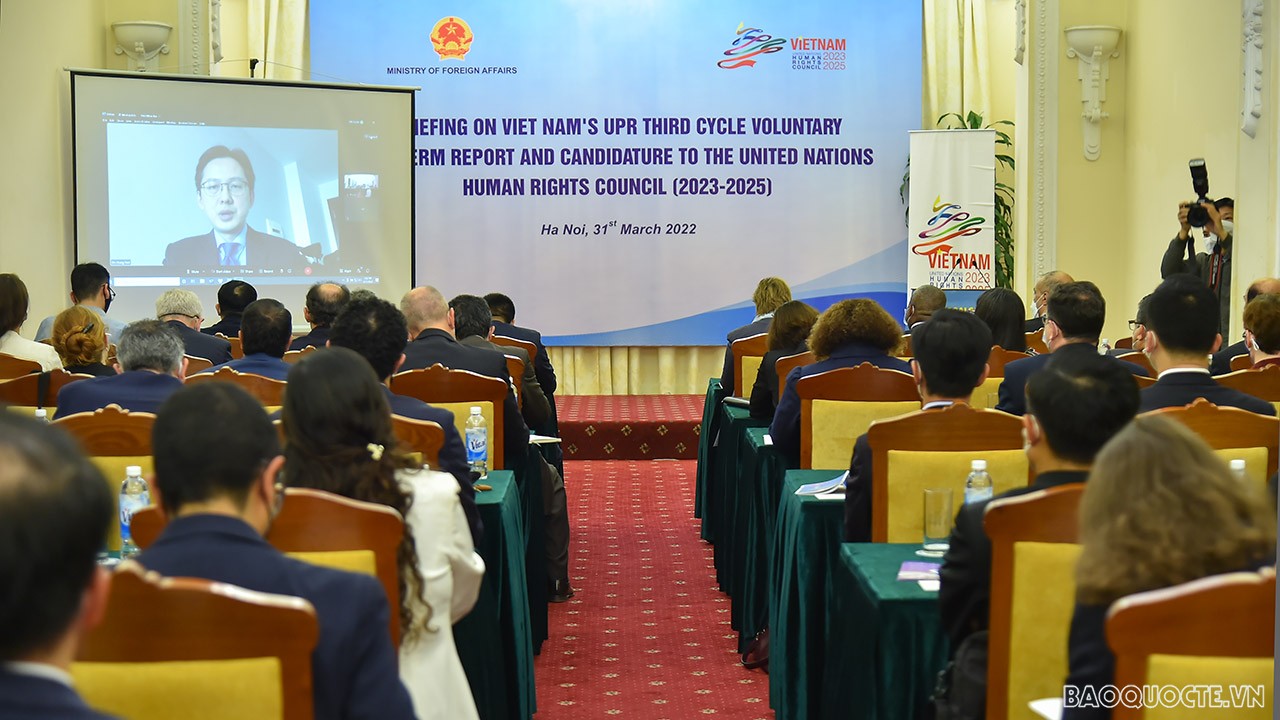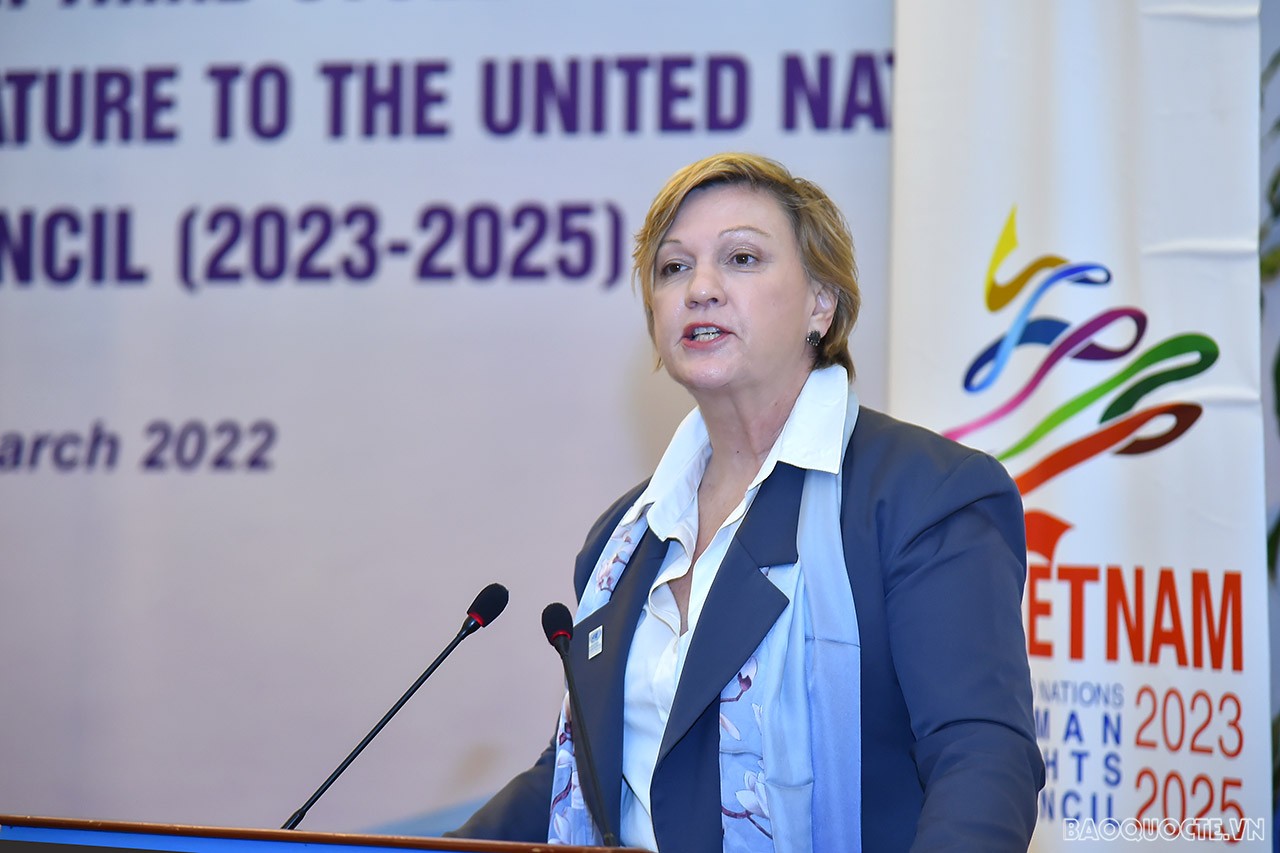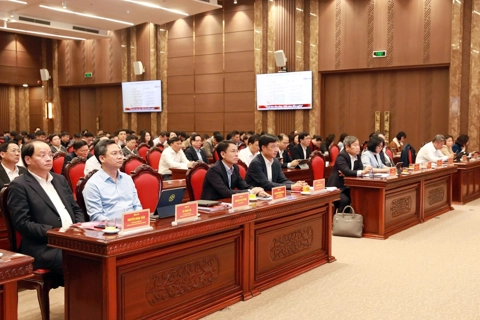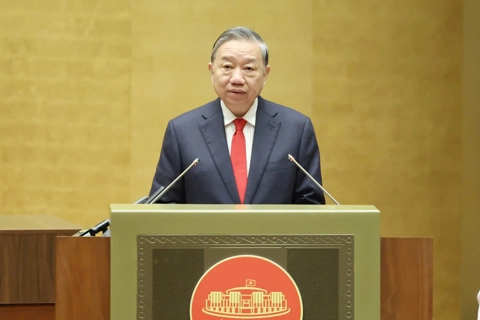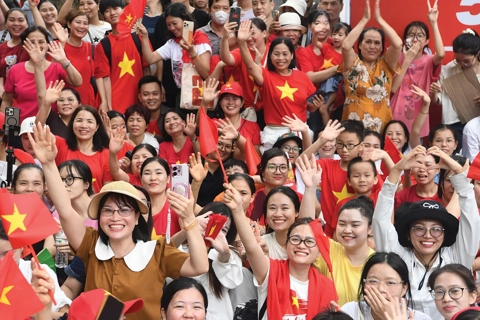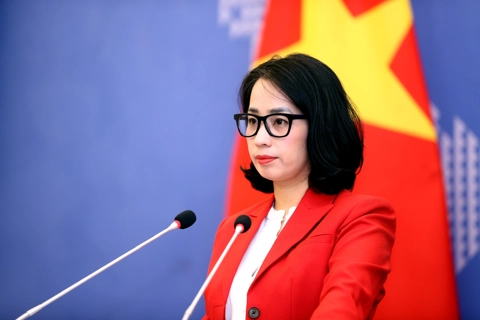Vietnam announces UPR mid-term report amid candidacy to UN Human Rights Council
Vietnam is among 20 countries developing UPR Third Cycle Voluntary Mid-term Report.
Vietnam on March 31 announced its Universal Periodic Review (UPR) Third Cycle Voluntary Mid-term Report to show its national responsibility for human rights issues in the country.
| Assistant to Vietnam’s Foreign Minister Do Hung Viet said the UPR Third Cycle Voluntary Mid-term Report was approved by the prime minister on March 23, 2022 to submit to UNHRC. Photos: MOFA |
The event marked the participation of more than 70 participants who are heads and representatives of UN bodies, international organizations, foreign diplomatic missions in Vietnam, Vietnamese agencies, and domestic and foreign non-governmental organizations.
The report demonstrates the member state's responsibility, transparency and seriousness of Vietnam toward the UPR Mechanism in particular and in the implementation of international commitments on ensuring human rights in general. It becomes significant in the context that Vietnam is on its candidature to the UN Human Rights Council (UNHRC) 2023-2025.
Vietnam is the only ASEAN candidate for UNHRC and got support from the regional member states. Addressing the High-level Segment of the UNHRC’s 49th Regular Session, Vietnamese Foreign Minister Bui Thanh Son delivered Vietnam’s message for the candidacy: “Mutual Respect. Dialogue and Cooperation. Ensuring All Human Rights, for All.”
Speaking at the event on Thursday, Assistant to Vietnam’s Foreign Minister Do Hung Viet affirmed that Vietnam will cooperate with the UN member states and relevant stakeholders to maintain principles of the UN Charter and international, reinforcing the UNHRC role through dialogues, cooperation, and mutual respect.
Vietnam is committed to promoting gender equality, mostly for women and girls in the digital transformation era; continuing recommending Resolutions on human rights and climate change in partnership with other members of the Core Group; contributing to the council’s drive in healthcare and post-pandemic recovery.
| Rana Flowers, UN Resident Coordinator a.i. in Vietnam, said at the briefing on Mar 31. |
UPR demonstrates Vietnam’s responsibility for human rights cause
This is the first time that Vietnam has developed a Voluntary Midterm Report on the implementation of the UPR recommendations. To date, only 79 countries have submitted at least one voluntary midterm report. For Third Cycle, Vietnam is among 20 countries that have developed such a report.
Addressing the event, Rana Flowers, UN Resident Coordinator a.i. in Vietnam on behalf of international partners highly appreciated Vietnam’s commitments and efforts in promoting and protecting human rights, including implementation of the recommendations under the UPR Third Cycle and the development of the Voluntary Midterm Report, together with commitments to stand for election to UNHRC 2023-2025.
Flowers said in the world today, there remain challenges in protecting and promoting human rights, so does in Vietnam as pointed out in the Voluntary Midterm Report. The UN bodies pledged to stand side by side with Vietnam to protect human rights, promote the principles of international law, implement Sustainable Development Goals, leaving no one behind.
In Third Cycle, Vietnam received 291 recommendations from 122 countries and approved 241 of them. On December 31, 2019, a decision by the prime minister was issued to implement the UPR recommendations – Third Cycle approved by Vietnam with the participation of 18 ministries and agencies.
Launched in 2008, the United Nations UPR is a peer review mechanism in which States ask questions and make recommendations. A review cycle is a four-and-half year period within which all UN Member states’ human rights records are reviewed.
If a state, in preparing its national report, seeks the views of all relevant national stakeholders and properly reflects those views in the final report, then its peers (other states, represented in the UPR Working Group) have a reliable and realistic basis for assessing that country’s human rights situation and for making useful recommendations for improvement.


